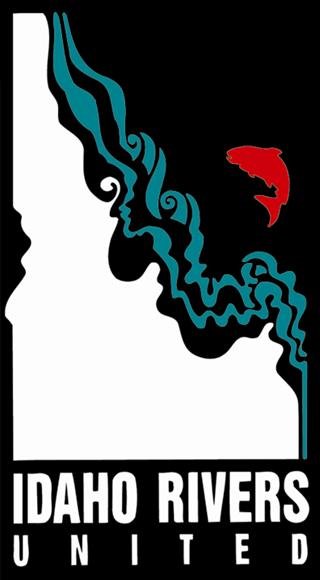Stibnite Gold Project Update
South Fork of the Salmon River - looking upstream near the confluence with the Main Salmon. Photo credit: Nick Kunath, IRU staff
Perpetua Resources has moved forward with two new permit applications that are required if the Stibnite Gold Project (SGP) comes to fruition. One is a state-required permit to utilize cyanide on-site for the extraction of gold, while the other is a federal permit required under section 404 of the Clean Water Act (CWA) that is issued through the Army Corp of Engineers.
The 404 permit application is open for public comment through October 7th. This permit is a major opportunity for public engagement as well as a potential avenue to see this problematic mine stopped. This is the same permit that ultimately was the final blow to the proposed Pebble Mine in Alaska in January of this year.
Section 404 of the CWA establishes regulations for the discharge of dredged or fill material into waters of the United States, including wetlands and streams. In the case of the SGP, nearly every aspect of the proposed mine will have some impact on wetlands and streams. Most notably, the construction and development of the Tailings Storage Facility and deposition of mine waste within the Meadow Creek Valley, expansion and excavation of the three open pits, construction of new roads, and the impacts associated with upgrading electrical transmission lines are some of the activities that IRU is highlighting in our comments.
Under 404 regulations, no discharge of dredged or fill material may be permitted if: (1) a practicable alternative exists that is less damaging to the aquatic environment or (2) the nation’s waters would be significantly degraded. In other words, when you apply for a permit, you must first show that steps have been taken to avoid impacts to wetlands, streams and other aquatic resources; that potential impacts have been minimized; and that compensation will be provided for all remaining unavoidable impacts.
Given the importance of the South Fork of the Salmon River for Chinook salmon, bull trout, and westslope cutthroat, many of our key concerns focus on the impacts that this project will have on this critical watershed and the feasibility of the mitigations that Perpetua has proposed. As we have highlighted in the past, even under the ideal circumstances that are outlined within the recent Supplemental Draft Environmental Impact Statement, this project will be a net loss for ESA-listed species and their critical habitat with stream temperatures remaining elevated for up to 100 years — to us, that is a far cry from real mitigation or restoration as touted by Perpetua.
As with other major permits associated with this project, we are partnering with our core coalition partners Save the South Fork Salmon, Idaho Conservation League, and Earthworks to evaluate the permit application and associated materials as we prepare our joint comments. We will also have a comment letter for our members to submit before the deadline in the coming weeks.
The cyanidation permit will be another opportunity for public comment, however, the Idaho Department of Environmental Quality (the state agency responsible for issuing this permit) is still evaluating Perpetua’s submitted materials to determine if the application is indeed complete.
The permit was submitted on September 1st and triggers a 30-day period for DEQ to review and determine completeness. During this phase, DEQ can either reject the application outright or move forward and issue a draft permit at which time a 60-day public comment period will open.
It’s important to note that Perpetua and DEQ have been in discussions regarding this permit since 2017 and submitted an initial Preliminary Design Report (PDR) to DEQ in November of 2021. This PDR, while not a requirement of the final permit, was ultimately not approved by DEQ. Despite the lack of approval for the PDR, Perpetua has elected to move forward with their current application.
IRU will continue to monitor this permit and provide our members with any updates as soon as they become available as well as any additional resources to help digest and engage with this aspect of the proposed Stibnite Gold Project.


